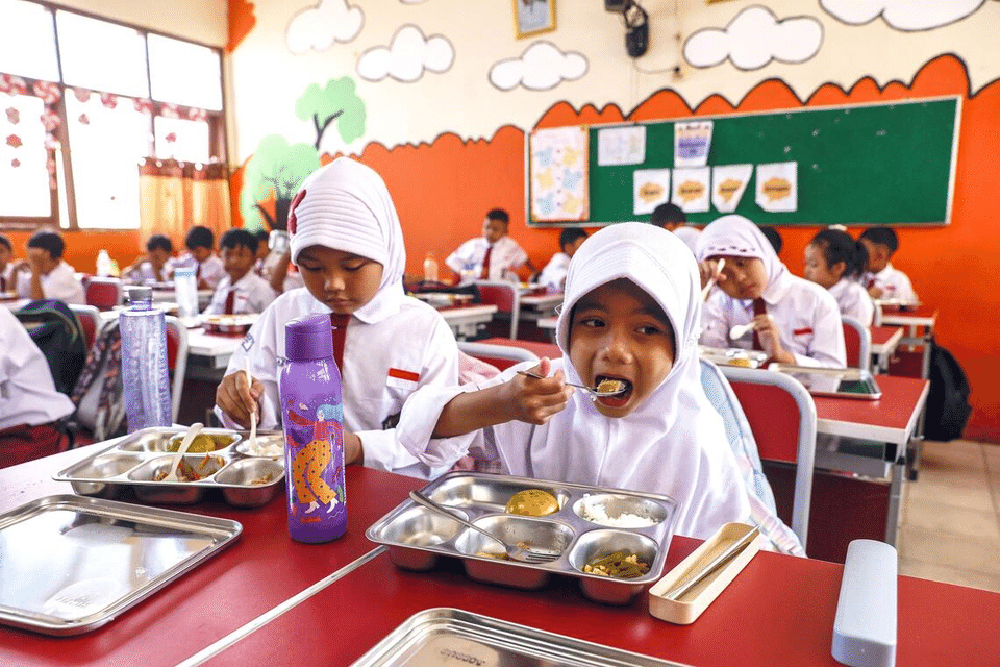Indonesia reported two mass food poisoning incidents in one day linked to the government's free school meal program, according to Reuters. The most serious incident occurred on 17/9 in West Java province, when 569 students from five schools in the Garut area experienced nausea and vomiting after consuming chicken rice provided by a caterer in the program. Another incident in the Banggai Islands, Central Sulawesi province, on the same day, affected 277 students. This is considered the largest outbreak of poisoning to date under President Prabowo Subianto's flagship program.
In response to the situation, on 22/9, a number of non-governmental organizations (NGOs) working in the health sector called on the government to immediately suspend the program for a comprehensive review. The $10 billion program has reached over 20 million people since its launch in January.
 |
Thousands of students in Indonesia have suffered food poisoning since President Prabowo Subianto launched the free school meals program in January. Photo: EPA |
Thousands of students in Indonesia have suffered food poisoning since President Prabowo Subianto launched the free school meals program in January. Photo: EPA
Ubaid Matraji, head of the Education Monitoring Network (JPPI), told a parliamentary committee that this was a "systemic failure". According to statistics from the Institute for Development of Economics and Finance (INDEF), an Indonesian research organization, from the program's launch in January to August, 6,452 children nationwide were affected by food poisoning.
NGOs also expressed concerns about quality and oversight. The Center for Indonesia's Strategic Development Initiatives (CISDI) argued that the government currently has no clear mechanism for evaluating caterers after incidents occur. In addition, Dr. Tan Shot Yen of the Movement for Mothers and Children's Health warned that the current menu still overuses "ultra-processed" items, contrary to the goal of providing nutrition, and risks causing non-communicable diseases.
Faced with this pressure, President Prabowo's spokesperson, Prasetyo Hadi, apologized for the "recurrence of incidents". The head of the National Nutrition Agency, Dadan Hindayana, also expressed regret and pledged to conduct an investigation, noting that there have been 4,711 suspected cases of poisoning out of a total of one billion meals served.
However, the government insists it will not halt the program. The Garut regional government said it will increase supervision of kitchens and temporarily switch to providing more basic foods such as bread, milk, and boiled eggs. Deputy chairman of the national health commission, Charles Honoris, also stressed that the program is "strategic and will continue to be implemented".
The free meal program is one of President Prabowo Subianto's flagship projects, with the ambitious goal of reaching 83 million women and children by the end of the year. The budget for this year's program is $10.3 billion and is expected to double next year, despite major questions being raised about safety standards and monitoring effectiveness.
Binh Minh (Reuters, Indonesia Businees Post, Jakarta Globe)












